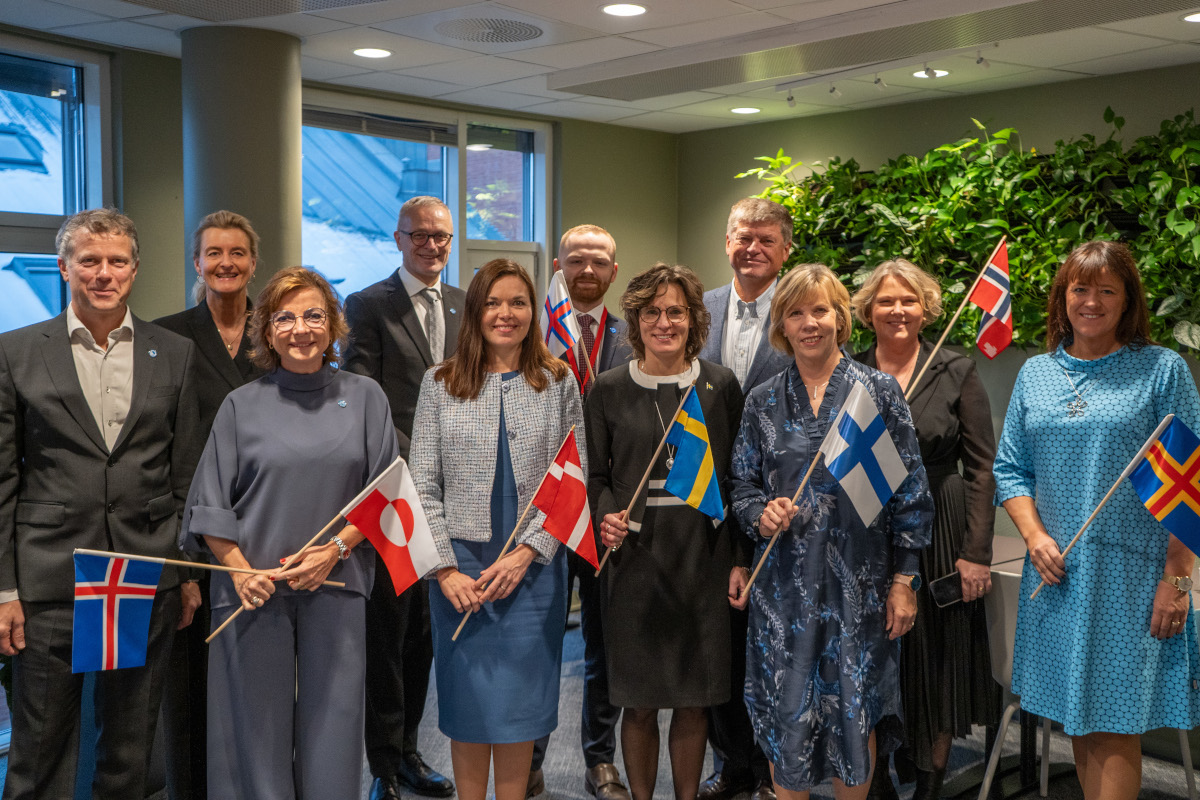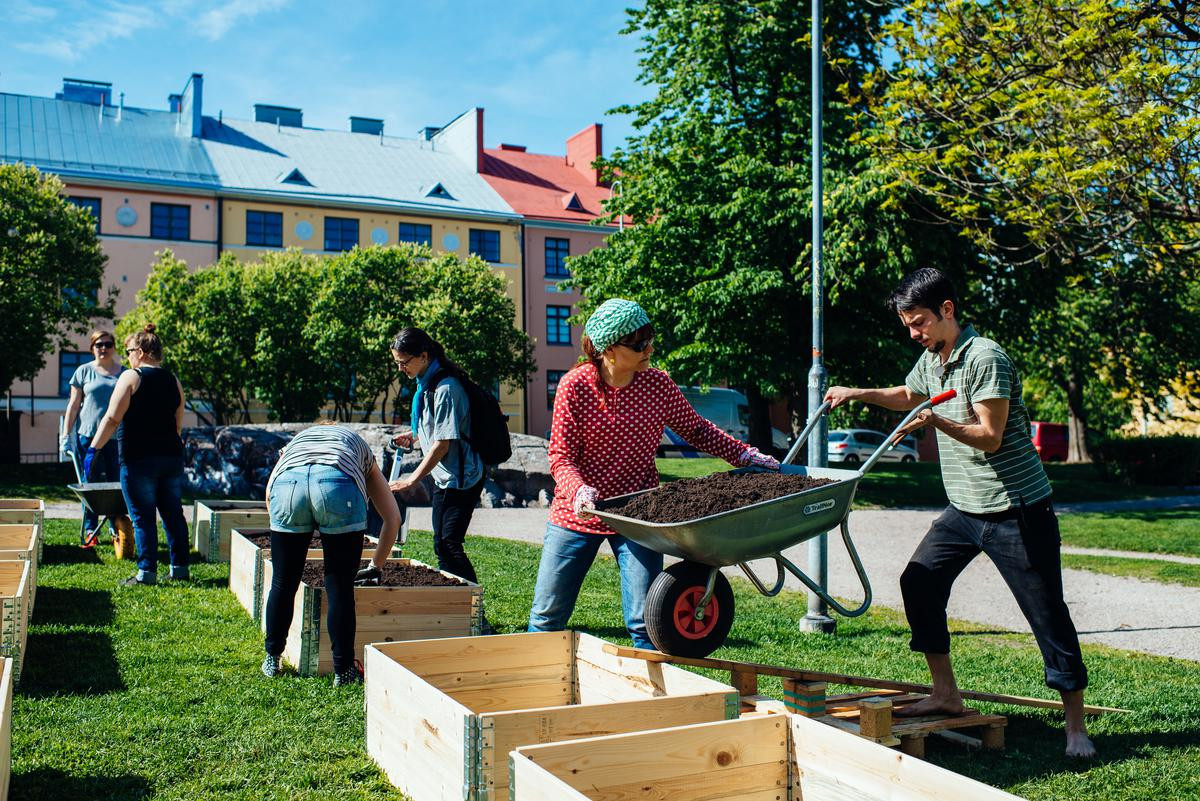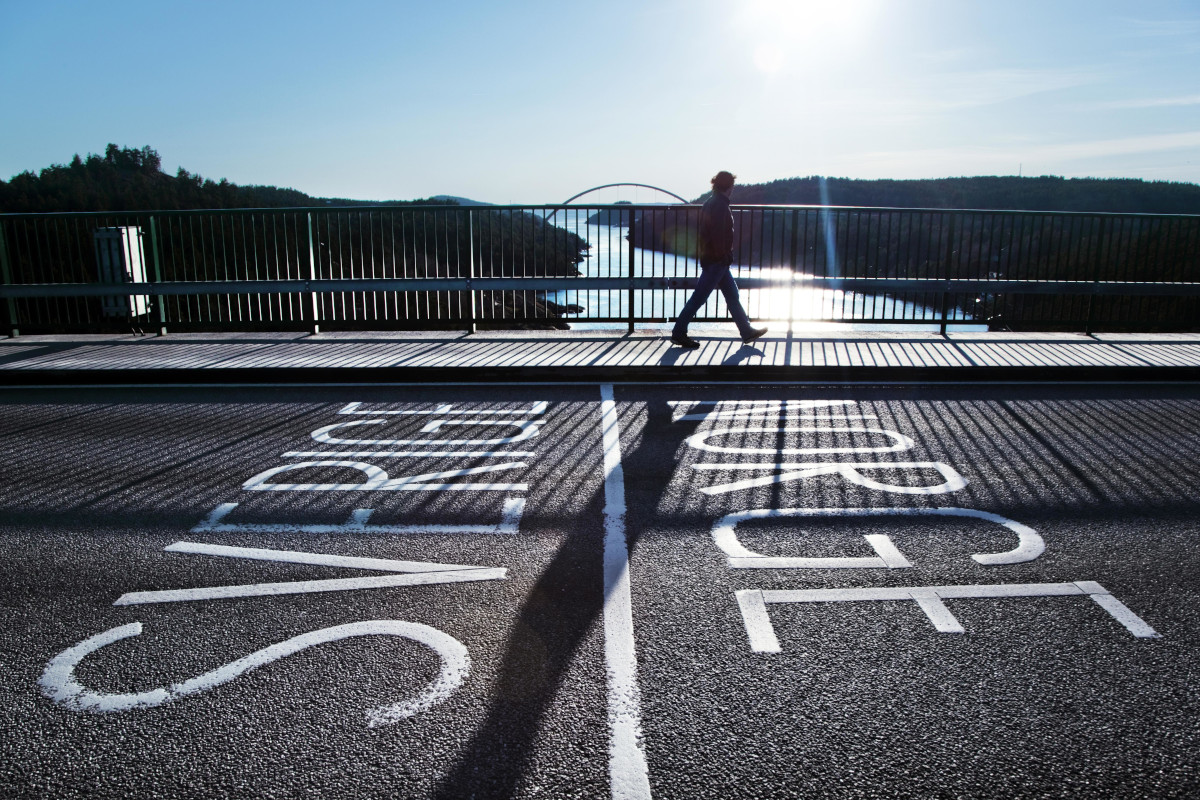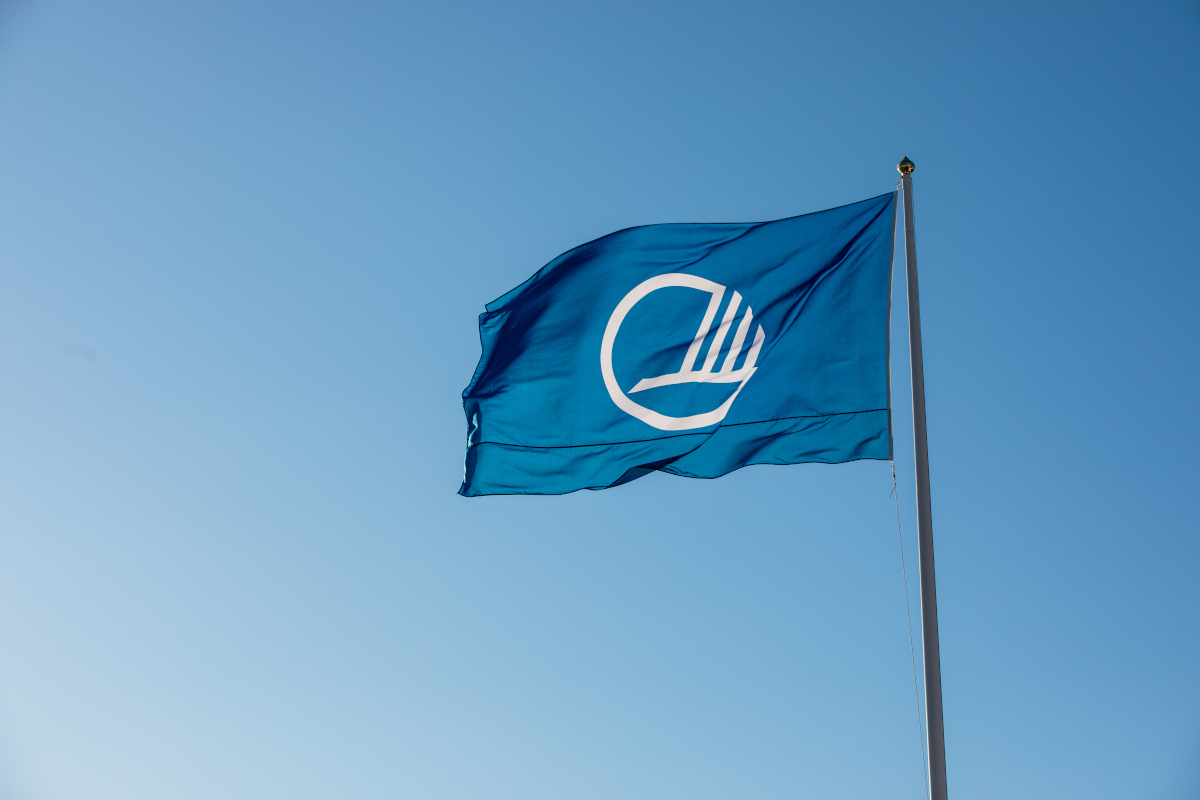Nordic cooperation increases stability and makes daily life easier
Finland, Sweden, Norway, Denmark and Iceland, together with Åland, the Faroe Islands and Greenland are engaged in official Nordic cooperation within the Nordic Council of Ministers and the Nordic Council. The exceptional times we have been living in recent years have emphasised the importance of Nordic cooperation.

Founded in 1971, the Nordic Council of Ministers is the official collaborative body of the governments of the Nordic countries. The Presidency of the Nordic Council of Ministers rotates between the countries with the prime minister of the Presidency chairing the prime ministerial meetings. Practical work is led by ministers for Nordic cooperation.
The 75th Session of the Nordic Council took place in Oslo at the beginning of November. The Session’s main theme was a ‘safe, green and young Nordic region’ inspired by the common vision of the Nordic countries for 2030 (Vision 2030).
The Finnish Government ministers who participated in the Session were Prime Minister Petteri Orpo, Minister for Foreign Affairs Elina Valtonen, Minister of Education Anna-Maja Henriksson, who is responsible for matters related to Nordic cooperation, and Minister of Climate and the Environment Kai Mykkänen.
Vision 2030 for Nordic cooperation
Nordic cooperation is guided by Vision 2030 with the aim to make the Nordic region the most sustainable and integrated region in the world. The three priority areas where this aim is pursued are a green Nordic region, a competitive Nordic region and a socially sustainable Nordic region.
The programme for the Presidencies will be based on Vision 2030, and it will serve as a framework for cooperation. However, the country holding the Presidency can highlight its own priorities in its programme. The Swedish Presidency in 2024 will focus on closer cooperation to remove obstacles to free cross-border movement throughout the Nordic region and on increasing integration between the countries.
Joint preparedness makes Nordic countries stronger

One of the basic principles underpinning Nordic cooperation is that the countries are strong together.
The coronavirus pandemic showed, however, that in a crisis cooperation was not as good as was expected. This is why the Nordic prime ministers have stressed the importance of cooperating more closely on crisis preparedness, security of supply and resilience. Resilience refers to strengthening the ability of countries, communities and individuals to recover from a crisis. In changing circumstances, it is important for countries to maintain their operational capacity and preparedness to respond to and recover from possible crises.
The Nordic countries are making efforts to promote crisis resilience across all sectors of society, and the Nordic Council of Ministers could play an important role in this.
Security was high on the agenda at the Nordic Council meeting in Oslo. Minister Henriksson, alongside the other Finnish ministers, highlighted the importance of Nordic crisis preparedness and resilience on several occasions.
Removing cross-border obstacles will make daily life easier in the Nordic region

For the Nordic region to become the most sustainable and integrated region in the world, members of the Nordic Council must make efforts to strengthen cooperation on removing obstacles to free cross-border movement, among other issues. This cooperation is carried out between both individual countries and across the Nordic region. Ministers, the Nordic Freedom of Movement Council, national parliaments, administrative bodies and authorities participate in the cooperation. Finland is responsible for removing cross-border obstacles arising from its national legislation.
Minister Henriksson raised the issue of strengthening cooperation on removing cross-border obstacles in several meetings and sessions in Oslo. At a joint ministerial meeting of the ministers for Nordic cooperation, Henriksson stressed how important it is for the countries to intensify their joint efforts in making living, studying, working and entrepreneurship easier in the Nordic region.
Cooperation on removing cross-border obstacles is important for the national economy, as economic interaction across borders strengthens the operating conditions for business and maintains the vitality of border regions.
Cooperation on removing cross-border obstacles was also discussed at a meeting with the Swedish Minister for EU Affairs Jessika Roswall, who is responsible for Nordic affairs, and at a meeting with the Swedish-Finnish-Norwegian cross-border advice service.
Henriksson pointed out cross-border digital identification as one example. Finns cannot easily contact the Swedish tax authorities, for example, because Finnish online banking credentials cannot be used to log into the tax authority’s website.
“The current obstacles to cross-border freedom of movement affect the daily lives of citizens throughout the Nordic region. New legislation should be nationally scrutinised to ensure that it does not create new obstacles to citizens’ freedom of movement,” says Minister Henriksson.
Finland to hold the Presidency of the Nordic Council of Ministers in 2025

In summer 2023, the Danish Government approached the Finnish Government with a request to change the order of their Presidencies of the Council of Ministries so that contrary to the usual rotation, Finland would hold the Presidency in 2025 and Denmark in 2026. Finland accepted Denmark's request and will take on the Presidency of the Nordic Council of Ministers in 2025.
The preparation of the programme for Finland's Presidency will begin in late 2023. Almost all ministries will participate in the preparation of the presidency programme, and the work will be coordinated by the Ministry for Foreign Affairs. During its Presidency of the Nordic Council of Ministers in 2025, Finland will also hold the Presidency of N5 cooperation, which is informal cooperation between the Nordic Foreign Ministers.
Prime Minister Petteri Orpo will present the programme for Finland's Presidency at the Nordic Council Session in Reykjavik next autumn.
“We look forward to the Presidency. Finland will implement new cooperation programmes starting in 2025, which are extremely important for achieving the goals of Vision 2030,” Henriksson says.
More information
- Um.fi — Information on Nordic co-operation on the Ministry for Foreign Affairs website
- Norden.org(Link to another website.) — Information on Nordic cooperation on the Nordic Council website
- Vision 2030(Link to another website.) — The vision for Nordic cooperation on the Nordic Council website
